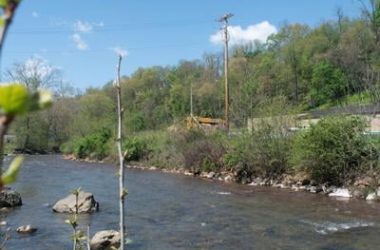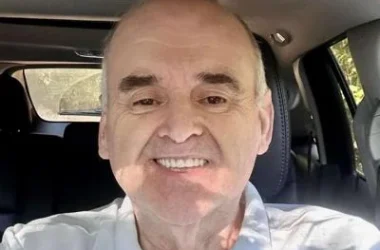By KEN WARD JR.
Charleston Gazette-Mail
CHARLESTON, W.Va. — Former Massey Energy CEO Don Blankenship will be asking the U.S. Supreme Court to hear an appeal of his conviction for conspiring to violate federal mine safety and health standards, his lawyers confirmed Thursday.

(Gazette-Mail file photo)
Blankenship’s defense team filed a short form with the 4th U.S. Circuit Court of Appeals noting that it would submit a petition asking the Supreme Court to review the case. Bill Taylor, Blankenship’s lead defense attorney, confirmed that information but declined further comment.
A petition to the Supreme Court would be a statistical long shot. The court hears only about 80 cases each year out of the 7,000 to 8,000 appeals that are filed annually. About another 100 cases are decided by the court without a hearing, according to the court’s website.
In April 2016, U.S. District Judge Irene Berger sentenced Blankenship to the maximum sentenced allowed, saying he had created a culture at Upper Big Branch that “encouraged unsafe working conditions in order to reach profitability and production targets.” Blankenship also paid a $250,000 fine and now must spend one year on probation.
Blankenship’s lawyers have about two weeks to file their petition to the Supreme Court.
While Blankenship was not charged with causing the disaster, the accusations against him focused on rampant violations of safety standards — mine ventilation, roof support and dust control — known for decades to be effective in preventing underground explosions.
On Thursday, Blankenship appeared on the morning radio show that Charleston Mayor Danny Jones hosts on WCHS-AM and also gave an interview to S&P Global Market Intelligence. Among other things, he told Jones that he never was interested in any sort of plea bargain with federal prosecutors.
“I never would allow the lawyers to have any discussion about the plea,” Blankenship said. “I knew I was innocent.”
In those news media appearances, Blankenship continued what he had started on his Twitter feed on Wednesday, a reprise of his arguments that he was prosecuted because of a conspiracy among Democratic political leaders and his theories about what he believes caused the Upper Big Branch Mine disaster — both issues that Blankenship did not raise as legal arguments when he appealed his conviction to the 4th Circuit.
Investigations by the U.S. Mine Safety and Health Administration, the Governor’s Independent Investigation Panel, led by longtime mine safety advocate Davitt McAteer, the state Office of Miners Health, Safety and Training, and the United Mine Workers union agreed that the mine disaster was caused by a longtime pattern of safety violations by Massey and by Blankenship’s insistence that the company put coal production and profits ahead of safety protections for miners.
Blankenship’s legal team has argued that the indictment against Blankenship didn’t properly outline the mine safety violations at issue, that Berger wrongly denied the defense the chance for a second cross-examination of a major government witness, and that Berger had incorrectly instructed the jury about the prosecution’s burden of proof. The central argument in their appeal, though, was that Berger was wrong to instruct the jury that Blankenship’s “reckless disregard” of federal mine safety and health standards amounted to criminal willfulness needed for a conviction.
In January, the 4th Circuit upheld Blankenship’s conviction, in the process turning down arguments from coal industry trade groups, including the West Virginia Coal Association, that the prosecution of Blankenship amounted to criminalizing the “tough decisions” that mining executives have to make weighing “production, safety and regulatory compliance.”
“By subjecting mine operators to personal liability, including incarceration, Congress forced mine operators to internalize the costs associated with noncompliance with mine safety laws, even when such noncompliance would be profit-maximizing from a business perspective,” Judge James Wynn wrote. “To that end, Congress said that operators should not balance the financial returns to increasing output against the costs of safety compliance.”
See more from the Charleston Gazette-Mail




